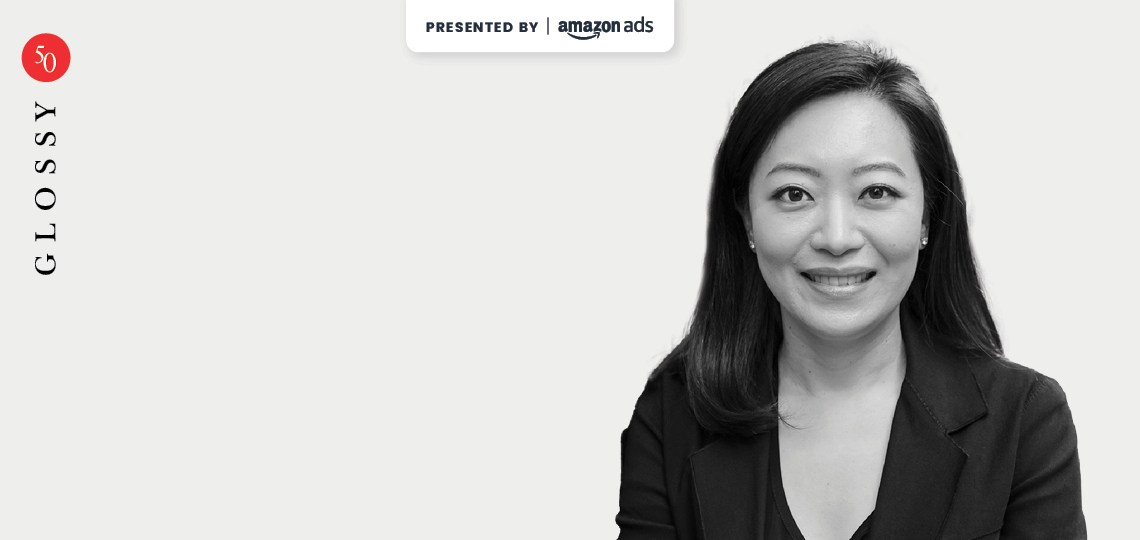The Glossy 50 honors the year’s biggest changemakers across fashion and beauty. More from the series →
The Dealmakers: The people making the industries’ most impactful deals
Ju Rhyu
Founder and CEO, Hero Cosmetics
In 2017, during the height of DTC e-commerce, acne-care brand Hero Cosmetics opted to launch on Amazon. It followed up that move by establishing retail partnerships with Target and Ulta Beauty, pushing the brand into an omnichannel strategy that other companies are now racing to develop.
Ju Rhyu, founder and CEO of Hero Cosmetics, now five years old, said this disruptive approach is just one aspect of the brand’s DNA. Hero Cosmetics is focused on better solutions for acne and problematic skin, with its hero product, Mighty Patch, serving as a leader in the acne-patch category. It holds 63% market share of the acne patch category, which is over five-times the brand’s next closest undisclosed competitor, according to IRI market data. In 2021 the brand crossed $100 million in sales and sold to multinational conglomerate Church & Dwight, known for brands like Arm & Hammer and Nair, for $630 million. Rhyu remains on board as CEO, with her position and responsibilities unchanged.
What was your biggest business objective this year?
“We wanted to find the right strategic partner and went out [looking] in March. Part of the reason was that we’re growing fast. We knew the category was getting more competitive, and it just made sense for us. It was hard, too. I had no idea that [selling] and M&A processes would take up a lot of time and travel, but it was the No. 1 priority, because it secures the legacy of Hero as a company and team.
Everything at Hero has been superspeed. We’ve only been around for five years, but we hit over $100 million sales in 2021 and have always been profitable. Our team has grown quite significantly, to 60 people, and there’s still so much more demand. We knew that if we partnered with [another company], we’d be able to run much faster, open [retail and manufacturing] doors faster, and open new markets a lot faster. But we were sort of constrained.”
Ad position: web_incontent_pos1
What have been the brand’s biggest sales channels and drivers?
“We go viral a lot on TikTok and have a strong community on Instagram. We focus on [what we call] the magic moment in videos, which is different for each product. For the Mighty Patch, it’s the peel off [of the patch]. With Rescue Balm Red Correct, it’s the color-changing aspect, where it neutralizes skin redness. We sell at Target, which is a big place of discovery, in addition to being a sales channel. And even on our DTC site, I’ll periodically look at the post-checkout survey where we ask, ‘How did you find out about us?’ and a lot of people mention retail as a point of discovery. And as the acne category gets more well-known, it benefits our business [to be] on channels like Amazon, because people may search for a ‘pimple patch’ or ‘acne patch’ or ‘pimple solution’ and see our Mighty Patch product.”
What is your outlook on the acne category?
“Acne has been ignored for a long time. There were a lot of people interested in the acne-care category but didn’t see anything new or interesting until we arrived. It’s a great category, because it’s a true problem-solution category. And it’s an emotional category, where you meet consumers in a true moment of need.
There are a lot of 1.0 acne brands that have plateaued and are on the [sales] decline. What we’ve shown is that there’s still a lot of demand for innovative acne products and fresh new messaging. … [But] the competition factor was a huge [driver toward selling the business], because we knew big players were coming into this category. Johnson & Johnson launched acne patch products under Neutrogena. [Selling] was partially about shoring up our defenses so that we can be more aggressive against competitive products.”
Ad position: web_incontent_pos2
Are there opportunities to expand beyond acne?
“I see a lot of opportunity for Hero to become a brand platform. What that means is expanding beyond acne one day, because 70% of people who have acne have other skin issues, like dark undereye circles, fine lines and hyperpigmentation.”
Click here to see all 2022 Glossy 50 honorees.




